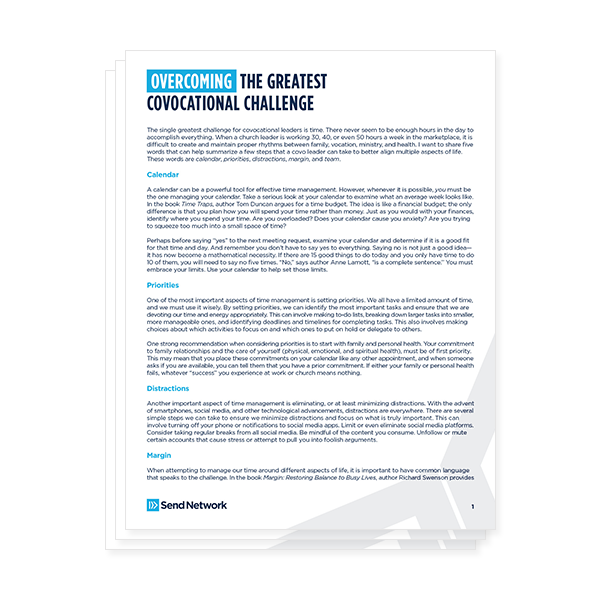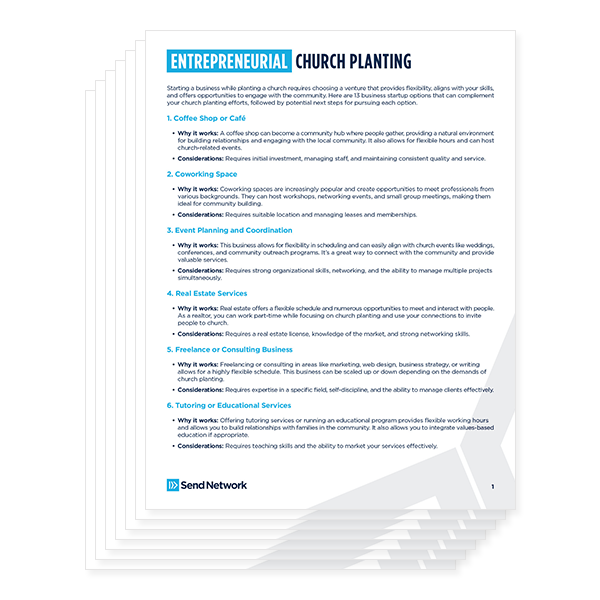1 Peter 5:1-11
“Vision” has become somewhat of a buzzword in evangelical circles. Often, the word serves as a means to transform ordinary phrases into supercharged, cutting-edge phrases; they become relevant, inspirationaland catalytic, even if they are saying particularly nothing at all. Despite the ambiguity typically associated with the word vision, we should still labor to save it from utter meaninglessness, partly because it is a biblical word with biblical relevance (Proverbs 29:18), and partly because it can be of great service to us. So what do we mean when we say that a replanter must be characterized by vision? Simply put, a replanter must have ideas about the future of the church, and he must be able to winsomely communicate those ideas to his congregation. He must be able to paint a biblical picture of the church that is beautiful enough for his people to recognize as beautiful.
This is an incredibly important characteristic because a replanter isn’t simply planting a brand new church, nor is he stepping into the role of a pastor in an already healthy congregation; he is “re-planting” a church because something has gone wrong there, otherwise there would be no need to re-plant at all! This means that a congregation’s unity of heart, zeal for spiritually qualitative growth and a common understanding of what the church needs are not luxuries a replanter is endowed with; he has come with the express purpose of uniting the hearts of a divided congregation, reinvigorating the zeal of stagnant church members and teaching a confused church about what they actually need. This is not to say that every replanter will necessarily face the same set of difficulties as the next, only that a replanter will typically have to work harder for the buy-in of his congregation than the average pastor or church planter. This means that a replanter must have an intentional sense of longevity when it comes to his decisions; he doesn’t make arbitrary decisions about changing policies on church membership, the frequency of observing the Lord’s Supper, the order of service, the color, of the carpet or the layout of the bulletin—a replanter who has vision makes these steps at calculated points.
It is also important to stress where this vision is coming from. A replanter is not a CEO, making decisions that bring about the most expedient results while slavishly conforming to the principles of supply and demand. Nor is a replanter merely a micro-dictator, imposing his own personal preferences on the congregation like they were law, while showing little concern for the health and stability of the people underneath him. Rather, a replanter is a pastor; he is a shepherd. The shepherd-replanter doesn’t base his decisions on worldly criteria of success—as if the outward trappings of a booming organization equate to real ecclesiastical health; he gives his sheep what they need, even if what they need does not appear to be what they want. The shepherd-replanter also recognizes that he is a shepherd only secondarily, and that his flock does not ultimately belong to him because he did not purchase it with his own blood (Acts 20:28). A replanter is an undershepherd, which means that his primary concern is not to have his congregation conform to his will, but to the will of their Good Shepherd.
All of this means that a replanter casts vision that conforms to the biblical pattern of ecclesiology and mission for the good of his flock and will labor to serve his people to this end in the same way that Jesus—the Good Shepherd—served his people: by laying his life down for his sheep (John 10:1-21). A replanter will get to know his flock and will allow for them to get to know him. He will lead his people where they need to go, and he will lovingly correct them when they begin to wander from the right path. He will feed his people the rich and savoring food of God’s Word because he know it will nourish them and cause them to grow, even if their appetites have become accustomed to the sickeningly sweet candy of self-help. He will always put the needs of his congregation above his preferences, and he will pour his life out for their good. In other words, a church replanter is not simply a visionary; he is a visionary shepherd, and his bright ideas are executed within the context of a people whom he loves and is eager to lay his life down for. This brand ofvision is an essential characteristic of a church replanter.
Get engaged and become equipped in replanting as you spend two days with experienced replanters at the NAMB Replant Lab.
Published July 11, 2016




